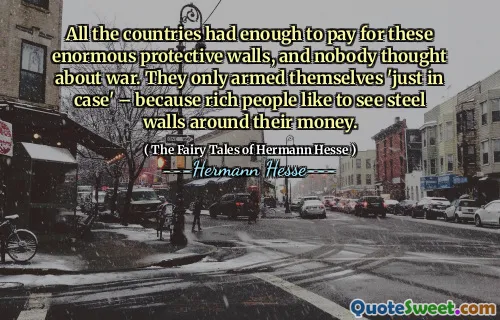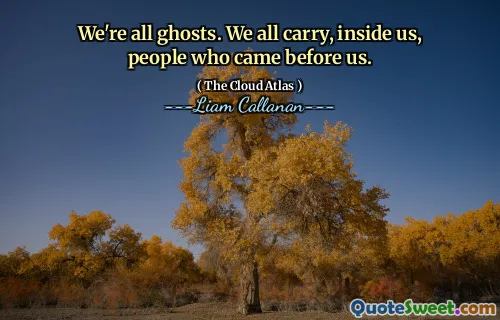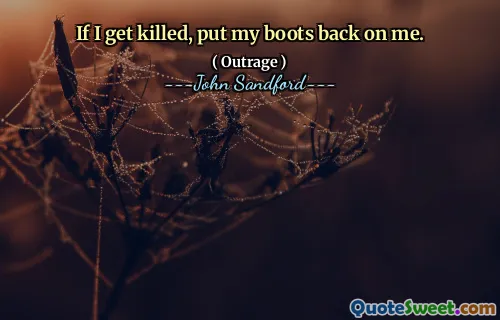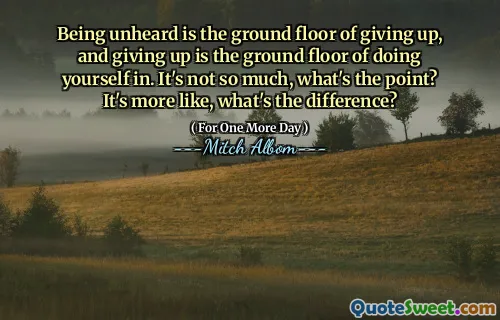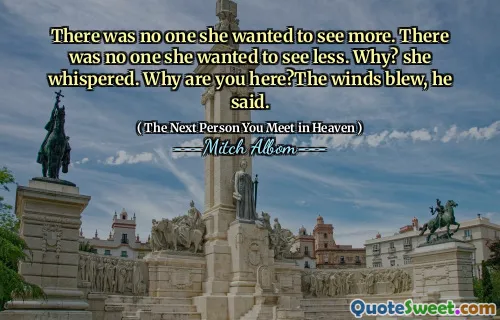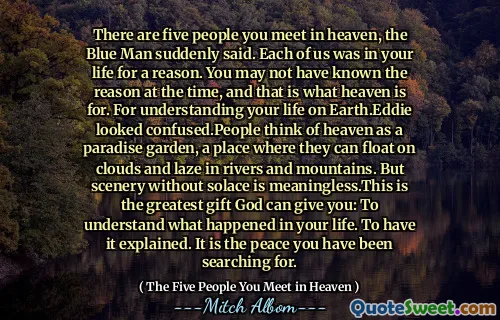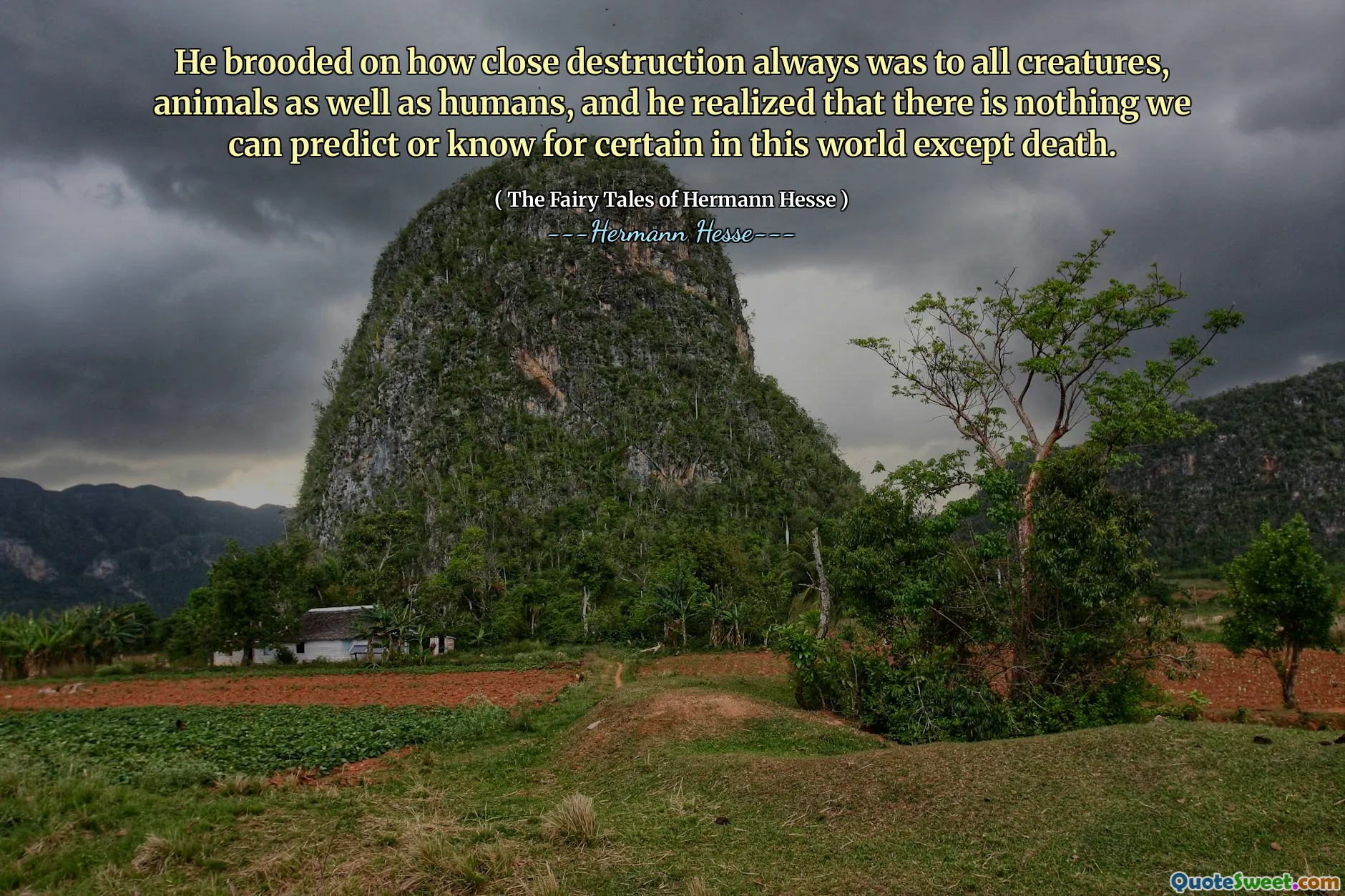
He brooded on how close destruction always was to all creatures, animals as well as humans, and he realized that there is nothing we can predict or know for certain in this world except death.
This quote deeply resonates with the universal truth about the fragility and unpredictability of life. It highlights a profound contemplation on the inevitability of destruction and death, a stark reminder that no matter the species—be it human or animal—everyone shares the same ultimate fate. The quote invites reflection on the transient nature of existence, where certainty eludes us except in the inevitability of death. It underscores the inherent vulnerability faced by all living creatures and challenges the illusion of control or predictability in life. Such meditations can evoke both a sense of humility and urgency, inspiring us to live with greater awareness and appreciation for the present. It also encourages acceptance of life's impermanence, urging us to find meaning beyond the quest for certainty. Hermann Hesse's words encapsulate a timeless philosophical insight that is both somber and enlightening, prompting readers to reconcile with the realities of mortality while fostering a deeper connection to the delicate balance of life. This reflection serves as a reminder of the shared destiny among all beings and the importance of embracing life despite its uncertainties.

